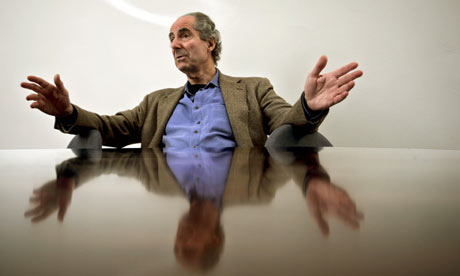
Philip Roth's late run of productivity has long been a source of wonder in the literary world, with his latest novel coming out this week less than a year after the last, and another already complete. But the 76-year-old's own energy is not, according to him at any rate, any reflection of vibrant life in fiction itself. Roth has long been pessimistic about the survival of the novel in a gaudy, short-attention-span culture, but his latest prophesy is one of his bleakest yet, predicting that the form will dwindle to a "cultic" minority enthusiasm within 25 years.
The author believes that the concentration and focus required to read a novel is becoming less and less prevalent, as potential readers turn instead to computers or to television. "I was being optimistic about 25 years really. I think it's going to be cultic. I think always people will be reading them but it will be a small group of people. Maybe more people than now read Latin poetry, but somewhere in that range," Roth told Tina Brown, editor-in-chief of The Daily Beast.
He said it was "the print that's the problem, it's the book, the object itself". "To read a novel requires a certain amount of concentration, focus, devotion to the reading. If you read a novel in more than two weeks you don't read the novel really. So I think that kind of concentration and focus and attentiveness is hard to come by – it's hard to find huge numbers of people, large numbers of people, significant numbers of people, who have those qualities," he said.
And the advent of e-readers such as the Kindle will make no difference. "The book can't compete with the screen. It couldn't compete [in the] beginning with the movie screen. It couldn't compete with the television screen, and it can't compete with the computer screen," Roth said. "Now we have all those screens, so against all those screens a book couldn't measure up."
Roth 's new novel, The Humbling, is published later this week (and has already received a scathing review from the Observer's William Skidelsky, who called it "a piece of scandalous frippery").
Roth told Brown that – like The Humbling's hero Simon Axler, an ageing stage actor who has "lost his magic" – he worries about running out of ideas. "Routinely when I finish a book, I think 'What will I do? Where will I get an idea?' And a kind of low-level panic sets in. And then eventually something happens," he said. "I think I write and publish as often as I do because I can't bear being without a book to work on ... I don't feel I have this to say or that to say or this story to tell, but I know I want to be occupied with the writing process while I'm living."
Roth's pessimism about the future of the novel is not a recent moodswing. Talking to the Observer's Robert McCrum in 2001, he said that "I'm not good at finding 'encouraging' features in American culture. I doubt that aesthetic literacy has much of a future here."

